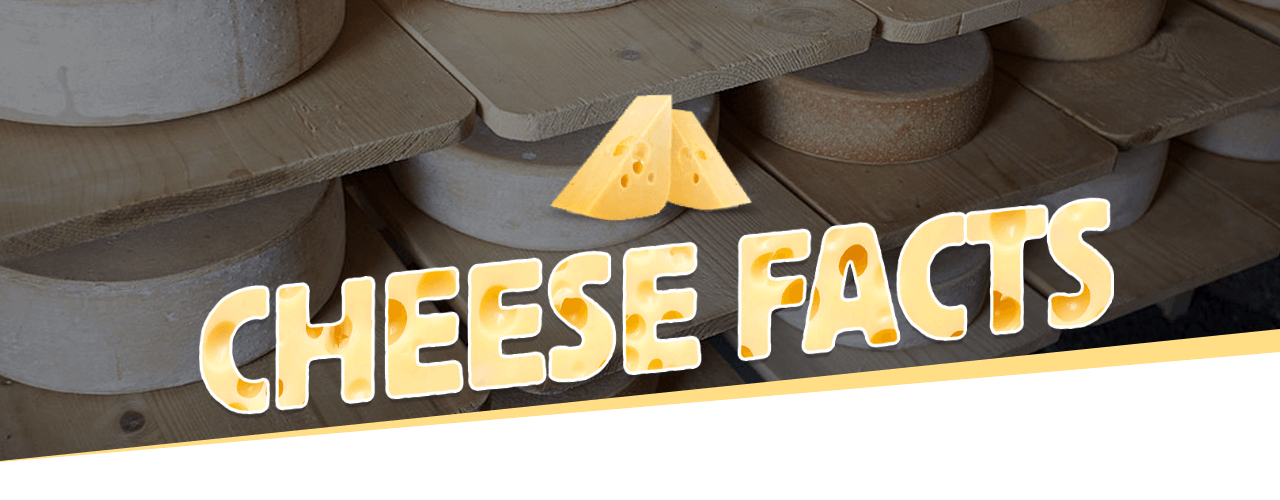Why we never use milk with added hormones
There has been a great deal of controversy in the Dairy Industry over the use of Recombinant Bovine Somatotropin (rBST), also known as Recombinant Bovine Growth Hormone (rBGH). This is an artificial hormone that is injected into cow's to increase the amount of milk a cow can produce. Although the US Food & Drug Administration (FDA) has ruled that this synthetic growth hormone is safe for human consumption, many consumers are concerned that these hormones can be passed through the milk and affect our own health – now and well into the future.
The FDA requires that the following statement be used on labels when the milk used for the product is free from added growth hormones:
“No significant difference has been shown between milk derived from cows treated with artificial hormones and those not treated with artificial hormones”.
At Berner Natural Cheese Company, we know we can't solve the debate, but we do know that we want to bring products to you that are as pure and safe as possible. We also feel it is important to keep in mind the general welfare and proper treatment of one of our greatest resources, the animal that provides us with the great nutrition of milk.

All Berner Valley brand cheeses are made with pure milk with no added growth hormones. When you see our gh-free logo, you know that you can trust our brand for great taste, great health benefits and purity.
Raising the standards of quality cheese with pasture-raised cows
All of the milk that we use comes from pasture-raised cows on family farms.
We work with local family farmers who are, in most cases, multi-generational farmers. We avoid the huge commercial farms. When the herds get big (500+ cows), the “herd mentality” sets in with cows standing in one spot rather than roaming and grazing. An interesting fact, the cows from our farmers have a life span up to 2-3 times of those who are part of the huge dairy farms, due to the way they are treated.
Pasture-raised means the cows are never confined in the barn at anytime and always have access to roam the farm for 12 months of the year. In the summer, the barns are equipped with misters that spray a fine water mist to help the cows keep cool on the hotter days.
So it is always a matter of choice for the cows. If they choose to leave the barn in hot or cold weather, it is their choice and they are encouraged - but not forced - to roam the farm. No “factory farms” here! We think it's more humane when cows don’t live their lives in confined spaces. In fact, we believe the milk – and therefore our cheese – tastes better!
How do your farmers care for their cows?
Our family farms understand that quality milk comes from healthy cows. For this reason, their exceptional cow care practices are centered around the cows' health and comfort. By providing clean, dry housing conditions, proper nutrition, sanitary milking procedures and veterinary recommended health programs, our family farms are able to produce high quality, wholesome milk.
What does "Pasture-Raised" mean?
Pasture-raised means that our family farms allow their dairy cows to roam and eat fresh grass in the pastures. Their cows are not confined to a barn, but are allowed to lay in the pastures and take in the fresh air whenever they like. Pasture-raised is not the same as grass-fed however, as our farmers' cows are fed a grain ration in order to sustain them as well nourished and healthy milk producers. Pasture-raised dairy cows are healthier than grass-fed cows since feeding a dairy cow only grass results in a nutritional deficiency.
Are their cows kept in pastures or in barns?
The cows are given the freedom to choose to either lay in the barn or roam outside to eat grass in the pasture. Because the weather isn't all sunny, the cows are provided clean, dry housing that allows them protection from poor weather, sun, rain and cold. By allowing the cows the choice to either be inside the barn or outside in the pasture, our family farms are creating a healthier, more productive environment for their cows.
What kind of feed do their cows eat?
Throughout the year, our family farms must continue to provide the same exceptional nutrition for their dairy cows despite the season. For this reason, the cows are fed a variety of forages, grains and fresh grasses, including alfalfa, timothy and clover to name a few. The grains that our family farms feed vary by farm and are formulated to supplement the specific nutritional needs that differ from cow to cow and farm to farm. Our family farms work with nutritionists that actually balance a ration that includes necessary vitamins and minerals for the cows depending on their unique needs. This all results in a healthier herd, which ultimately produces healthier milk for us all!
What are GMO’s?
GMO Free:
Current regulations with mandatory GMO labeling requirements do not require milk to be labeled as GMO when derived from cows fed GMO feed. This is also consistent with proposed state-level legislation (Vermont) for GMO labeling, specifically dairy from cows fed GMO feed would not be required to be labeled as containing GMO ingredients. This term is currently not defined by a federal agency. All of our milk is sourced from family farms and is GMO free.
Non-GMO: Identity Preserved:
This term describes materials which are Identity Preserved: Not derived from genetically modified materials and there is a verifiable record of the non-GMO origin of the seed and the maintenance of the non-GM integrity. The Non-GMO Project is an example of an organization that certifies this process.
Non-GMO:
This term describes products that contain ingredients, additives, or processing aides derived from commodities that have commercially grown GMO varieties in the supply chain, BUT residual DNA/Protein is likely NOT detectable in the final product. These products will not meet EU labeling regulations as Non-GMO.
GMO:
This term describes those products which contain commercially grown GMO varieties and likely will test positive.
Facts About Cholesterol And Saturated Fat
- 50% of all Americans have a cholesterol level of over 200 (drugdigest.org)
- 25 Million Americans are on cholesterol-lowering drugs (National Institute of Health)
- 65% of Americans are overweight which is commonly associated with high cholesterol levels (American Heart Association)
- 70 Million Americans are diagnosed with heart disease, the #1 cause of death in the U.S. (National Institute of Health)
- 900,000 Americans have heart attacks or strokes every year (American Heart Association)
- 18.2 Million Americans have Diabetes. High cholesterol level is common in Diabetics. 1.3 Million Americans are diagnosed with Diabetes each year (American Diabetes Foundation)
- Lowering cholesterol can reduce cancer risk (MSNBC Report Karen Collins RD)
- Consumer interest in lowering cholesterol is the primary reason for success in food products such as Soy Milk, Fiber Cereals & Breads, etc.
- “Reduction in consumption of Saturated Fat is the most important step in reducing cholesterol” (American Heart Association)
Facts about sodium
- American Public Health Association (www.apha.org) has passed a resolution calling for a 50% reduction in salt consumption which will save 150,000 lives per year
- High Sodium intake is the #1 cause of high blood pressure which is directly related to heart attacks and strokes. (American Heart Association)
Facts About Lactose
- As many as 50 Million Americans suffer from Lactose Intolerance.
What does it mean to be Grass Fed?
A term like grass-fed is simply a descriptor that anyone can put on a label. In some cases, it can still describe milk that is produced at a factory farm where the cows live their lives in confined spaces. While the cows are not 100% grass-fed, grass remains a part of their diets, making the description loosely accurate.
- Large factory farms can produce grass-fed milk despite the fact that the cows do not see daylight. This is why a grass-fed diet typically fails to have the desired results in terms of health and humane animal practices.
- Many farmers will tell you that 100% grass-fed cows are not as healthy as normal cows because they are not given enough protein and minerals.
- We prefer the term pasture-raised on family farms because this lifestyle cannot be duplicated by factory farms and consumers know their cows are being treated humanely.


